A new direction: everything you want to know

After yesterday’s news, we were deeply touched by your messages, phone calls, memories, and support. It reminded us once again that this farm has never been just ours. It has always lived through the people who walked its paths, shared its stories, and believed in what we created here.
The decision was not easy. Obelisk Farm has been our life for years — a place where we poured our time, love, work, and purpose. But this choice is not the result of something not working. If that were the case, we would have stopped long ago.
It may come as a surprise to many, but this decision comes from a place of strength, not struggle. We’ve learned that success doesn’t always mean staying on the same path. Sometimes, success means recognising when it’s time to move on — not because the possibilities have run out, but because you’ve grown beyond the version of yourself who first began the journey.
And we want to reaffirm this: it is possible to build, sustain, and make a living from a small business in Latgale, Latvia. With determination, hard work, perseverance, and community, it’s not only possible — it’s real. We’ve lived it.
And we haven’t done it alone. Every step of the way, we’ve been supported by people who believed in us — who visited, collaborated, encouraged us, and stood by us through seasons of growth and challenge. This success belongs not only to us, but to everyone who helped shape it.
As we mentioned yesterday, life has a way of evolving and guiding us in new directions. We are not done being entrepreneurs. And we are certainly not done working with hemp. But we want to start something new — a direction that reflects who we are now.
So we’ve decided that it’s time for someone else to take the lead. Obelisk Farm is more than ready — it is a working, living business with a strong foundation and a bright future ahead. We are now looking for the right person to continue this journey. Someone with vision, energy, and a desire to make this place their own — with their own ideas, in their own way.
This is a unique opportunity for someone ready to call this place home, and with the heart and vision to lead a successful hemp business forward.
Here’s what the farm includes:
-
A hemp farm located in the village of Obeliški, Latgale region — just a short drive from Viļāni and Varakļāni
-
2.59 ha of land with a pond, garden, and forest
-
Insulated 3-bedroom house and 5 outbuildings (including a hemp school, hemp museum, and hemp shop)
-
The house is partially furnished, with necessary household appliances
-
Recently renovated roof, double-glazed windows, and wood heating
-
Full infrastructure: electricity, own water supply, sewage system, and driveway
-
Fully equipped production space, ready to work
-
Registered company with accounting system
-
Established product lines, packaging, and sales channels
-
Award-winning brand with strong online presence and media recognition
-
Fully developed website and e-shop, ready for sales
-
Social media with over 18,000 followers across platforms
-
Strong position in agritourism
-
National and international partnerships and awards
-
Product recipes and financial information (available to serious inquiries)
This is a ready-to-live, ready-to-earn business — with a story, a structure, and a strong identity.
Even if you are new to hemp, we’re happy to help and support your transition.
📞 Want more information or to arrange a visit? Contact us — Andris (25123595) or write to us directly.
💚 Obelisk Farm continues as usual while we find the right person.
The fields are growing, the online store is open, and we’re still welcoming visitors who want to learn, connect, or simply enjoy this special place.
So if you’ve been meaning to visit — now is a beautiful time.
A time of change.
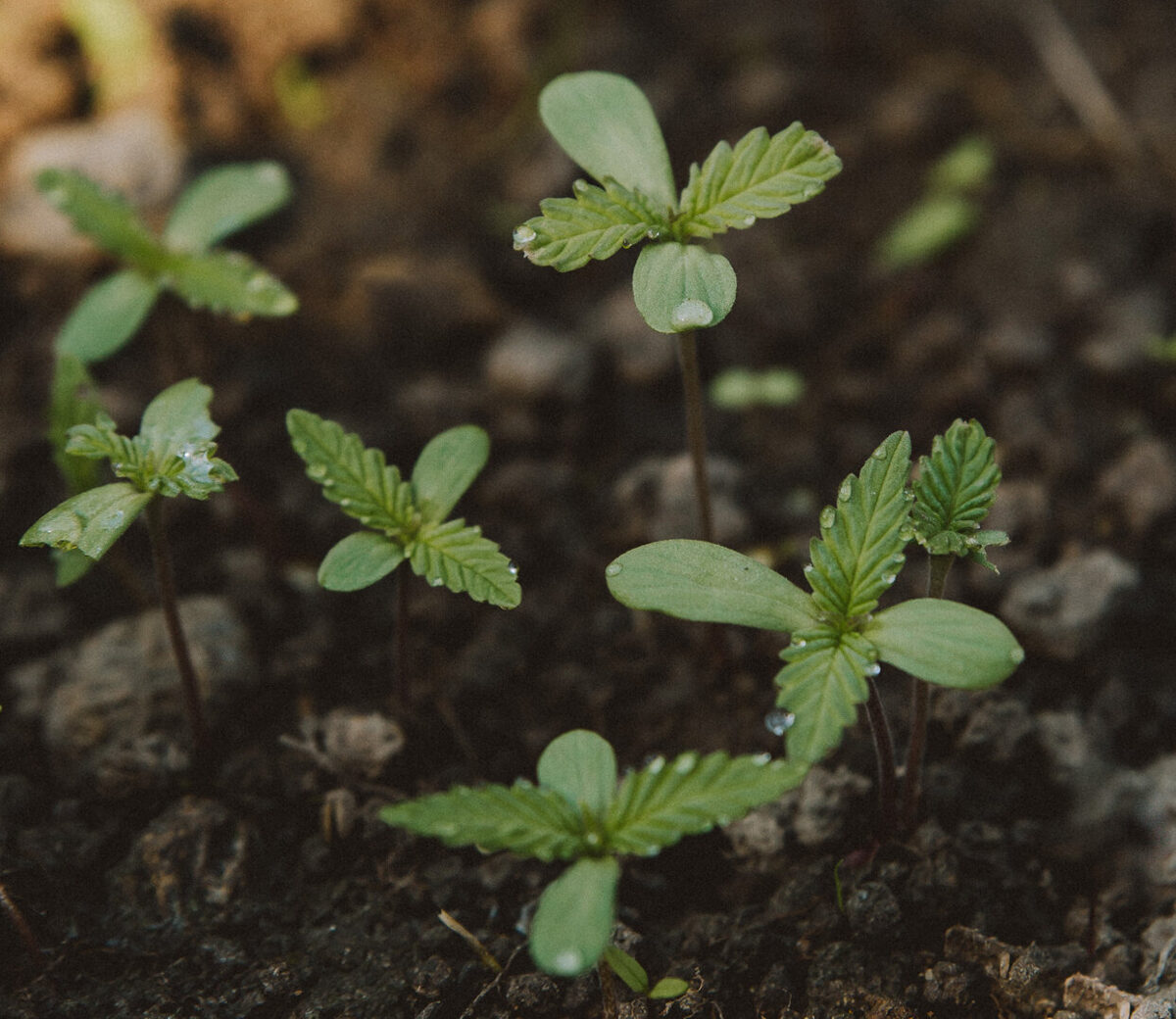
It’s spring again — the season of beginnings, of movement beneath the surface, of quiet transformations.
Here at the farm, the signs of the season are everywhere: new growth in the fields, light stretching longer each day, a fresh rhythm returning to the land. But this spring carries something different with it — a sense that change is arriving not only in nature, but in our lives too.
Over the past years, this farm has been much more than a place. It’s been a journey. A space where we planted seeds — real and symbolic — and watched them grow into something meaningful. From pressing oil and making paper, to building walls with hempcrete and creating a museum… we’ve explored all the ways this plant can connect us to the land, to each other, and to new possibilities.
It’s been work, yes — but also joy. A privilege. A story we’ve told with our hands, our hearts, and a lot of hemp.
Now, as everything around us begins to bloom again, we feel something shifting within us too.
We’re not quite ready to name it, but we know change is coming. A new chapter is unfolding — and while its shape is still forming, our love for hemp and all it represents remains strong and steady.
This place holds years of learning, building, and sharing. If you’ve ever thought about visiting, or have been curious to see what we’ve built — this spring might be the perfect moment. Come walk the land, explore the museum, feel the story this farm has to tell.
Because while everything is changing, some things stay the same — like our belief in this plant, and the deep roots it’s helped us grow.
How Hemp Supports Sustainable Agriculture
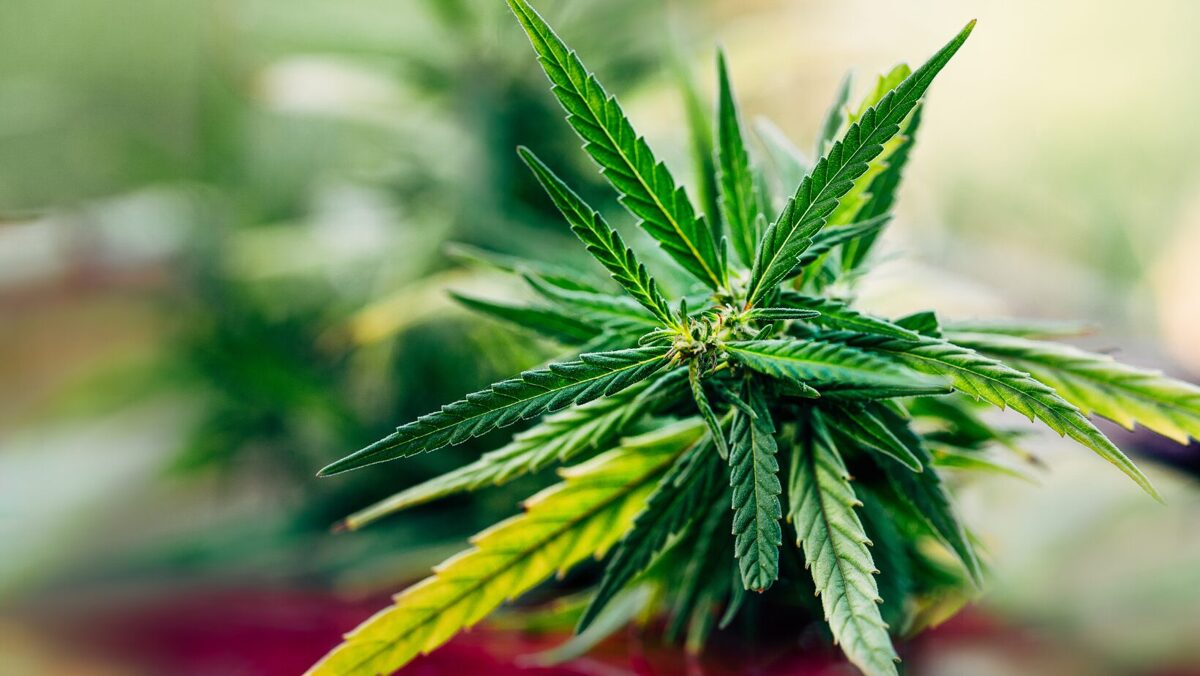
As we search for ways to create a more sustainable and resilient agricultural system, hemp stands out as a remarkable crop with the potential to address some of the biggest challenges facing the environment today. Known for its resilience, versatility, and numerous environmental benefits, hemp cultivation offers a range of advantages that support sustainable agriculture. From improving soil health to reducing reliance on pesticides, hemp is a powerful ally in the quest for a greener future. Let’s explore how hemp contributes to sustainable farming and why it’s considered an eco-friendly choice.
Improving Soil Health
One of the most compelling reasons to include hemp in sustainable agriculture practices is its ability to enhance soil health. Hemp has deep taproots that penetrate and break up compacted soil, which helps improve soil structure and aeration. This, in turn, increases water infiltration and reduces erosion, which is crucial for maintaining healthy, productive soil.
Additionally, hemp is known as a “bioaccumulator,” meaning it can absorb heavy metals and toxins from the soil. This makes it an excellent crop for phytoremediation, a process that helps clean and restore contaminated soil. After hemp cultivation, the soil is often left in better condition, making it easier to grow other crops and contributing to the overall sustainability of the land.
Reducing the Need for Pesticides and Herbicides
Hemp is naturally resistant to many pests and diseases, which means it can be grown with minimal or no pesticides. Unlike many other crops that require regular pesticide applications, hemp’s natural resilience reduces the need for these chemicals. This is not only beneficial for the environment but also promotes the health of the farmers and surrounding communities by minimizing chemical exposure.
In addition to its pest resistance, hemp grows quickly and forms dense foliage that effectively shades out competing weeds. This shading helps reduce the need for herbicides, as fewer weeds can establish themselves beneath the hemp canopy. By lowering the demand for pesticides and herbicides, hemp cultivation supports cleaner air, water, and soil.
Providing a Renewable Resource with Low Water Needs
Hemp is a fast-growing crop, often reaching maturity in just 90 to 120 days. Its rapid growth rate allows for multiple harvests in a year, making it a renewable resource that can be produced with high efficiency. Moreover, hemp is known for its relatively low water requirements, especially when compared to other industrial crops like cotton. Cotton, for instance, demands substantial amounts of water and typically relies heavily on pesticides, making it far less sustainable than hemp.
Hemp’s adaptability also means it can thrive in a variety of climates and soil types, reducing the need for irrigation. This water efficiency is especially valuable in regions prone to drought or water scarcity, where every drop counts. With increasing concerns about water conservation, hemp presents itself as a more sustainable choice for fiber, fuel, and food production.
Sequestering Carbon and Supporting Biodiversity
Hemp cultivation contributes to carbon sequestration, a process that removes carbon dioxide from the atmosphere and stores it in plants and soil. Hemp absorbs more CO₂ per hectare than many other crops, helping to mitigate greenhouse gas emissions and combat climate change.
Additionally, hemp fields can support biodiversity by providing habitats for a variety of insects, birds, and other wildlife. Hemp flowers attract pollinators like bees and butterflies, which are essential for the health of our ecosystems. As a result, hemp farming can enhance local biodiversity, promoting healthier ecosystems overall.
Why Hemp Is a Sustainable Crop
Hemp’s benefits for soil health, water efficiency, and reduced chemical use all contribute to its reputation as a sustainable crop. In comparison to many traditional crops, hemp requires fewer resources and offers higher yields. This efficiency not only makes hemp a viable choice for sustainable agriculture but also enhances its potential to support industries such as textiles, paper, and biofuel with a reduced environmental footprint.
By choosing hemp, farmers can cultivate a crop that promotes soil health, requires fewer inputs, and can be harvested multiple times per year. With its ability to provide fiber, food, and fuel, hemp is a truly versatile crop that supports a sustainable future.
The Science Behind Hemp: How It Grows and Thrives
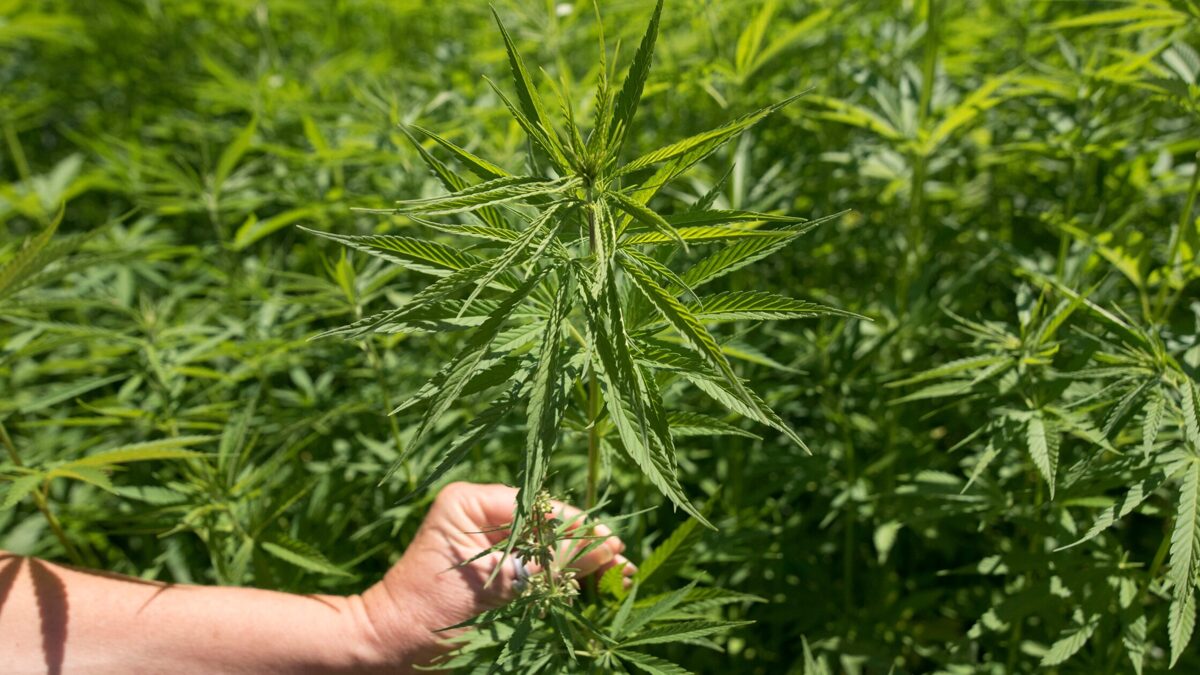
Hemp, one of the most versatile and sustainable plants on Earth, has been cultivated for thousands of years for its fiber, seeds, and medicinal properties. But what makes this plant so unique? In this blog post, we’ll dive into the fascinating biology of the hemp plant, explore its growth cycle, and uncover the optimal conditions it needs to thrive. Whether you’re a farmer, a gardener, or simply a hemp enthusiast, this guide will give you a deeper understanding of how hemp grows and why it’s such a resilient crop.
The Biology of the Hemp Plant
Hemp (Cannabis sativa L.) is a member of the Cannabaceae family and is closely related to hops. It’s a dioecious plant, meaning it has separate male and female plants. However, some varieties are monoecious, with both male and female flowers on the same plant. Here’s a closer look at its key biological features:
Leaves: Hemp leaves are palmately compound, with 5 to 9 slender, serrated leaflets. They are rich in chlorophyll, making them highly efficient at photosynthesis.
Stems: The stems are tall and fibrous, with a woody core that makes them ideal for producing strong, durable fibers.
Flowers: Female hemp plants produce flowers rich in cannabinoids like CBD, while male plants produce pollen for fertilization.
Seeds: Hemp seeds are small, nutrient-dense, and packed with protein, healthy fats, and minerals.
The Growth Cycle of Hemp
Hemp is an annual plant, meaning it completes its life cycle in one growing season. Here’s a breakdown of its growth stages:
1. Germination (5–10 days)
The hemp growth cycle begins with germination. Seeds require moisture, warmth (around 50–60°F or 10–15°C), and oxygen to sprout. Once the seed absorbs water, the root (radicle) emerges, followed by the shoot (plumule).
2. Seedling Stage (2–3 weeks)
During this stage, the plant develops its first true leaves and establishes a strong root system. Hemp seedlings are delicate and require careful attention to water and light.
3. Vegetative Stage (3–8 weeks)
This is the most rapid growth phase. The plant focuses on developing stems, leaves, and roots. Hemp can grow up to 10 cm (4 inches) per day under optimal conditions! Adequate nutrients, especially nitrogen, are crucial during this stage.
4. Flowering Stage (6–8 weeks)
As daylight hours decrease, hemp enters the flowering stage. Female plants develop resinous flowers rich in cannabinoids, while male plants produce pollen. For CBD production, female plants are preferred, as they produce higher cannabinoid concentrations.
5. Harvesting (Late summer to early fall)
The timing of harvest depends on the intended use:
Fiber: Harvested early, when plants are tall but before seeds mature.
Seeds: Harvested when seeds are fully developed and begin to harden.
CBD: Harvested when flowers reach peak cannabinoid content.
After harvest, the plant completes its life cycle, and seeds can be collected for the next planting season.
Optimal Growing Conditions for Hemp
Hemp is known for its hardiness, but it thrives best under specific conditions. Here’s what you need to know:
1. Climate
Hemp prefers temperate climates with moderate rainfall.
It grows best in temperatures between 60–80°F (15–27°C).
While hemp can tolerate light frosts, prolonged cold or extreme heat can stunt growth.
2. Soil
Hemp grows well in well-drained, loamy soils with a pH between 6.0 and 7.5.
It’s a nutrient-hungry plant, requiring nitrogen, phosphorus, and potassium for optimal growth.
Crop rotation is recommended to maintain soil health and prevent nutrient depletion.
3. Water
Hemp requires consistent moisture, especially during the germination and vegetative stages.
Overwatering can lead to root rot, so well-drained soil is essential.
4. Light
Hemp is a photoperiodic plant, meaning its flowering is triggered by changes in daylight.
It thrives in full sunlight, requiring at least 12 hours of light per day during the vegetative stage.
5. Spacing
Proper spacing is crucial to prevent overcrowding and ensure adequate airflow.
For fiber production, plants are typically spaced closer together, while CBD or seed production requires more space.
Why Hemp is a Resilient Crop
Hemp’s adaptability and resilience make it a favorite among farmers and environmentalists alike. Here’s why:
Low Water Requirements: Compared to crops like cotton, hemp requires significantly less water.
Natural Pest Resistance: Hemp produces compounds that deter pests, reducing the need for pesticides.
Soil Regeneration: Its deep root system helps prevent soil erosion and improves soil structure.
Carbon Sequestration: Hemp absorbs large amounts of CO2, making it a powerful tool in combating climate change.
Final Thoughts
Understanding the science behind hemp’s growth and biology not only deepens our appreciation for this remarkable plant but also highlights its potential as a sustainable crop for the future. Whether you’re growing hemp for fiber, seeds, or CBD, providing the right conditions will ensure a healthy and bountiful harvest.
At [Your Farm Name], we’re passionate about sharing the wonders of hemp with the world. Stay tuned for more insights, tips, and stories about this incredible plant!
🌱 Have questions about growing hemp? Drop them in the comments below—we’d love to hear from you!
The Challenges of Hemp Farming and How to Overcome Them
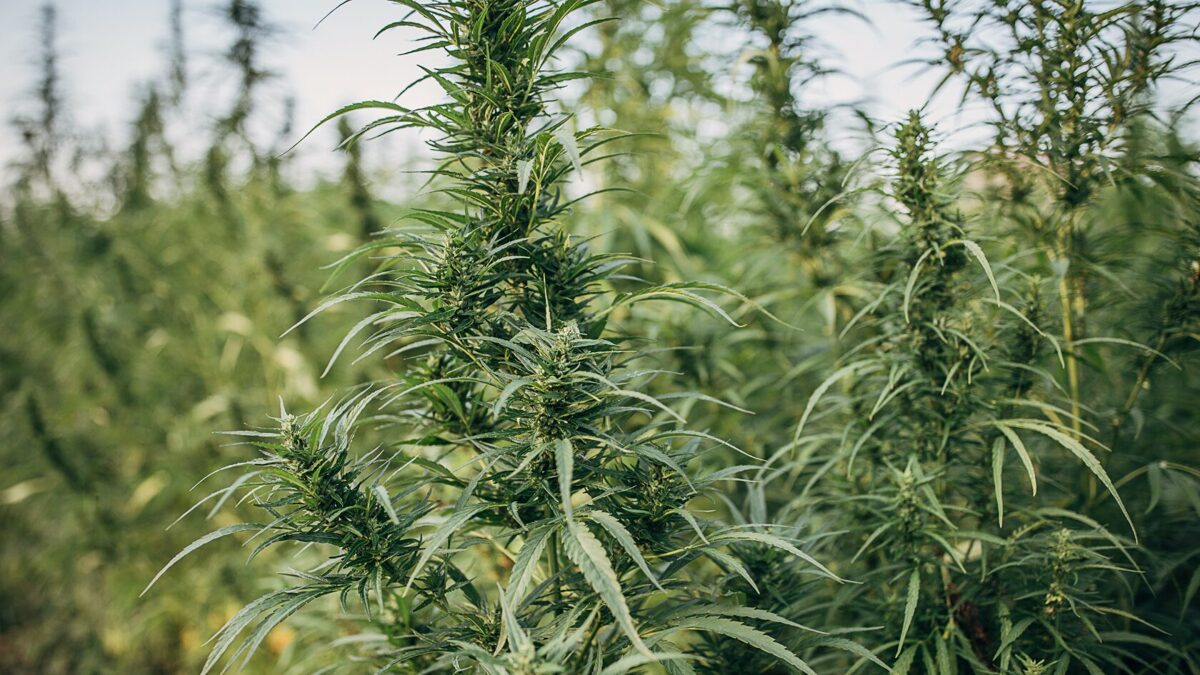
Hemp farming is gaining momentum as a sustainable and versatile agricultural practice, but like any crop, it comes with its own set of challenges. Whether you're a seasoned farmer or new to the industry, understanding these obstacles and how to address them is key to running a successful hemp farm. Here are some common challenges faced by hemp farmers and practical solutions to overcome them.
1. Navigating Legal and Regulatory Hurdles
Challenge: Hemp farming is heavily regulated, and laws vary by region. Farmers must comply with strict THC limits (typically 0.3% or less), licensing requirements, and reporting protocols. Missteps can lead to crop destruction or legal penalties.
Solution:
Stay informed about local, state, and federal hemp regulations.
Work with legal experts or agricultural extension services to ensure compliance.
Keep detailed records of seed sourcing, planting, and testing to prove compliance with THC limits.
2. Finding High-Quality, Compliant Seeds
Challenge: Not all hemp seeds are created equal. Poor-quality seeds can lead to low yields, high THC levels, or crops unsuitable for your intended use (e.g., fiber, grain, or CBD).
Solution:
Source seeds from reputable, certified suppliers with a track record of producing compliant hemp.
Test seeds for THC content and germination rates before planting.
Consider starting with clones or feminized seeds to ensure consistency.
3. Managing Pests and Diseases
Challenge: While hemp is generally resilient, it’s not immune to pests like aphids, mites, and caterpillars, or diseases such as powdery mildew and root rot.
Solution:
Implement integrated pest management (IPM) strategies, including crop rotation and beneficial insects.
Use organic pesticides and fungicides approved for hemp farming.
Monitor crops regularly for early signs of infestation or disease.
4. Ensuring Proper Soil and Nutrient Management
Challenge: Hemp is a nutrient-intensive crop that requires well-drained, fertile soil. Poor soil quality or improper nutrient management can lead to stunted growth and low yields.
Solution:
Conduct soil tests before planting to determine pH and nutrient levels.
Use organic fertilizers and compost to enrich the soil.
Rotate hemp with nitrogen-fixing crops like legumes to maintain soil health.
5. Dealing with Weather and Climate Variability
Challenge: Hemp thrives in specific conditions—warm temperatures, adequate rainfall, and plenty of sunlight. Extreme weather, droughts, or unexpected frosts can damage crops.
Solution:
Choose hemp varieties suited to your local climate.
Use irrigation systems to manage water during dry spells.
Consider planting in greenhouses or using row covers to protect crops from frost.
6. Harvesting and Processing Challenges
Challenge: Harvesting hemp at the right time is critical, especially for CBD production. Delayed harvesting can lead to higher THC levels, while improper drying and storage can ruin the crop.
Solution:
Invest in proper harvesting equipment, such as specialized combines for fiber or grain hemp.
Dry hemp in a controlled environment to prevent mold and preserve quality.
Partner with reliable processors to ensure your crop is handled correctly post-harvest.
7. Market Volatility and Finding Buyers
Challenge: The hemp market can be unpredictable, with fluctuating prices and demand. Farmers may struggle to find reliable buyers for their crop.
Solution:
Diversify your hemp products (e.g., CBD, fiber, grain) to reduce reliance on a single market.
Build relationships with processors, manufacturers, and distributors early in the season.
Stay informed about market trends and consumer demand to make informed planting decisions.
8. Lack of Farming Knowledge and Expertise
Challenge: Hemp farming requires specialized knowledge, and many farmers are still learning the ropes. Mistakes in planting, harvesting, or processing can be costly.
Solution:
Attend hemp farming workshops, webinars, and conferences to learn best practices.
Network with experienced hemp farmers and join industry associations.
Start small and scale up as you gain experience and confidence.
9. Testing and Compliance with THC Limits
Challenge: Hemp crops must be tested for THC levels, and even a slight exceedance can result in the entire crop being destroyed.
Solution:
Work with certified labs to test crops regularly throughout the growing cycle.
Choose low-THC hemp varieties and monitor environmental factors (e.g., stress, over-fertilization) that can increase THC levels.
Harvest early if THC levels are approaching the legal limit.
10. Access to Financing and Insurance
Challenge: Hemp farming can be capital-intensive, and many traditional lenders and insurers are hesitant to support hemp operations due to perceived risks.
Solution:
Seek out lenders and insurers who specialize in hemp or alternative crops.
Explore government grants or programs that support hemp farming.
Develop a solid business plan to present to potential investors or lenders.
Final Thoughts
While hemp farming presents its share of challenges, the rewards—both financial and environmental—are significant. By staying informed, adopting best practices, and leveraging available resources, you can overcome these obstacles and build a thriving hemp farm. As the industry continues to grow, so too will the opportunities for innovation and success.
Whether you're growing hemp for CBD, fiber, or grain, remember that every challenge is a chance to learn and improve. With dedication and the right strategies, your hemp farm can flourish and contribute to a more sustainable future.
What challenges have you faced on your hemp farm? Share your experiences and tips in the comments below! Let’s grow together as a community of hemp enthusiasts. 🌱
The Magic of Himmeli: A Handmade Christmas Tradition with Hemp

When it comes to decorating for Christmas, many of us think of twinkling lights, colorful ornaments, and festive wreaths. But there’s a quieter, more mindful tradition rooted in ancient craftsmanship that deserves a spot in your holiday celebrations: himmeli.
These delicate geometric ornaments, traditionally made from straw, embody both simplicity and beauty. Originating in Finland, himmeli were originally crafted as harvest decorations, hung from ceilings to bring good fortune and ensure a bountiful year ahead. Over time, they evolved into cherished Christmas decorations, symbolizing balance, harmony, and the promise of renewal.
This Christmas, why not decorate with meaning? Craft a himmeli, embrace a centuries-old tradition, and add a touch of sustainable beauty to your festivities.
✨ Ready to try it out? Join us on Patreon for the full video tutorial and make this holiday season even more special!
Celebrate Christmas with Hemp: Unique Gifts for a Memorable Holiday
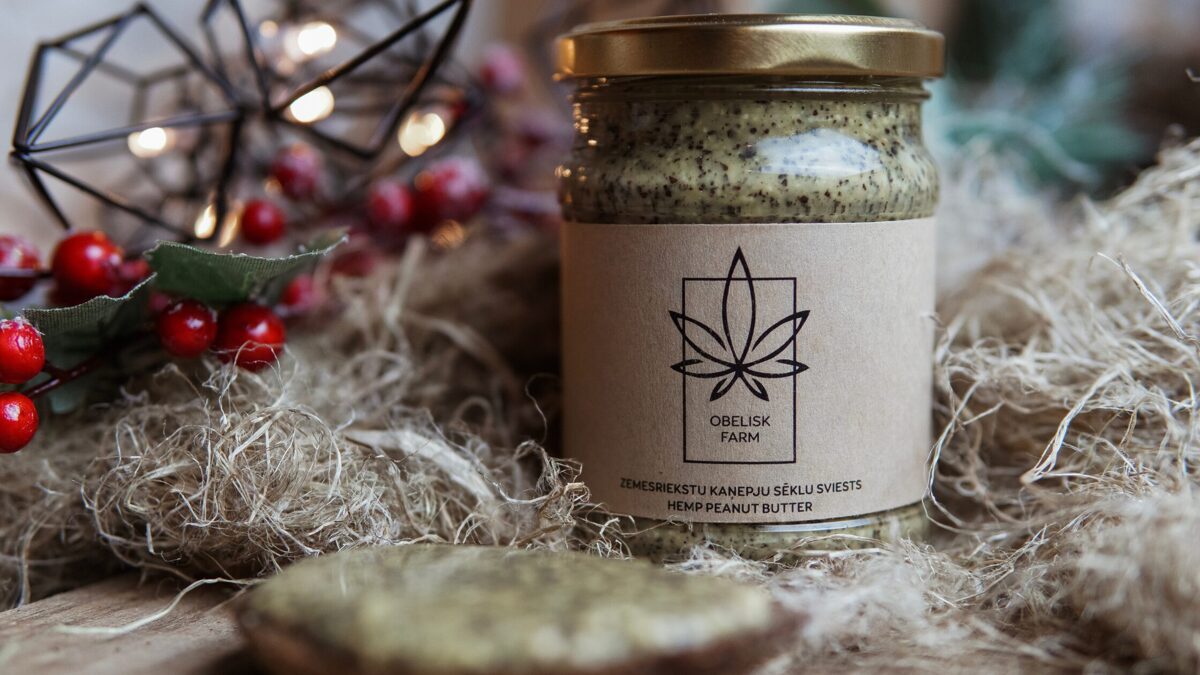
The holiday season is here, and it’s time to start thinking about meaningful gifts, festive decorations, and cozy traditions that bring us closer to our loved ones. If you’re looking for something unique this year, our hemp-based products might be just what you need!
Why Hemp?
Hemp is a plant full of possibilities, offering practical and versatile options for everyday life. By choosing hemp products, you’re adding natural charm and thoughtfulness to your holiday celebrations.
Hemp Products to Make Your Holidays Special
Here are some of our favorite hemp products to make this festive season unforgettable:
- Hemp Seed Oil: A delicious and thoughtful gift for food lovers. Drizzle it over salads, use it in dips, or add it to recipes for a rich, nutty flavor.
- Hemp Fiber Decorations: Bring a rustic touch to your home with handcrafted hemp ornaments. Perfect for creating a cozy holiday atmosphere.
- Hemp Paper Kits: Get creative and make personalized cards or gift tags with our hemp paper kits. A heartfelt, handmade touch always stands out.
- Hemp-based Textiles: Wrap your presents in reusable hemp fabric or surprise someone with a hemp bag they’ll love using all year round.
Celebrate with Meaning
Christmas is about thoughtful moments and heartfelt gestures. Hemp adds a unique element to gift-giving and decorating, creating traditions that feel genuine and special.
Add a Personal Touch
Pair our hemp products with a handwritten card or a story about how these gifts were made. It’s the little things that make your presents unforgettable.
🎄 Make This Christmas a Hemp Celebration! 🎄
Whether you’re shopping for gifts, crafting decorations, or simply looking for inspiration, hemp is the perfect choice to add a touch of natural beauty to the season. Explore our collection of hemp products and let’s make your holiday extra special.
Ready to order? Visit our online shop or contact us directly to find the perfect Christmas gifts! 🎁
Tips for Hosting a Sustainable Holiday Gathering

The holiday season is a time of joy, connection, and celebration, but it’s also a period when waste can skyrocket. From disposable decorations to excessive packaging, it’s easy for festivities to leave a hefty environmental footprint. This year, why not host a holiday gathering that’s kinder to the planet while still being filled with warmth and cheer? Here are some simple, thoughtful tips to make your holiday celebrations more sustainable.
1. Choose Sustainable Decorations
Instead of buying mass-produced decorations that may end up in the trash, opt for natural or reusable alternatives:
- DIY Creations: Use dried oranges, cinnamon sticks, and pinecones to create garlands or ornaments.
- Natural Touches: Decorate with greenery, branches, and flowers from your garden or a local market.
- Reusable Pieces: Invest in high-quality, timeless decorations you can use year after year.
Encourage guests to bring old ornaments they no longer use to swap and share—it’s a fun way to recycle and give decorations a new life!
2. Mind the Menu
Food is central to holiday gatherings, and there are plenty of ways to make your meal more sustainable:
- Plant-Based Options: Incorporate plant-based dishes, which have a lower environmental impact. Even offering a plant-based main dish can make a difference.
- Local and Seasonal: Source ingredients from local farmers or markets to reduce food miles and support your community.
- Reduce Food Waste: Plan portions carefully, store leftovers properly, and encourage guests to take home extra food.
Consider labeling dishes with their ingredients—this not only helps guests with dietary restrictions but also celebrates the thought you put into creating a mindful menu.
3. Rethink Gift Giving
If your gathering includes a gift exchange, suggest eco-conscious options:
- Experience Gifts: Tickets to a concert, a cooking class, or a nature excursion are memorable and don’t require wrapping.
- Homemade or Edible Gifts: Jams, baked goods, or handmade crafts add a personal touch and minimize waste.
- Thoughtful Wrapping: Use fabric, reusable gift bags, or recyclable kraft paper for wrapping. Decorate with twine, sprigs of greenery, or scraps of ribbon you already have.
A Secret Santa or white elephant exchange can also limit the number of gifts, reducing waste and encouraging more meaningful choices.
4. Set a Waste-Free Table
Ditch disposable tableware in favor of reusable alternatives:
- Dinnerware: Use real plates, utensils, and cloth napkins for a touch of elegance that’s also eco-friendly.
- Drink Stations: Set up a self-serve beverage station with glasses instead of offering single-use cups.
- Composting: Have a compost bin ready for food scraps and encourage guests to use it.
If your group is too large for your tableware collection, consider renting items or asking guests to bring their own.
5. Create a Cozy Atmosphere with Less Energy
Set the mood without wasting energy by being mindful of your lighting and heating:
- Candles and LED Lights: Use energy-efficient LED string lights and natural candles for a warm, festive glow.
- Thermal Comfort: If it’s chilly, provide blankets or light a fire instead of turning up the thermostat.
Encourage carpooling or public transportation to reduce emissions from travel.
6. Encourage Sustainable Conversations
The holidays are a time to share ideas and values. Use your gathering as an opportunity to discuss sustainable living in a casual, welcoming way. You could even share a small token, like a packet of seeds or a reusable shopping bag, as a reminder of the values you cherish.
A Celebration to Remember
Hosting a sustainable holiday gathering doesn’t mean sacrificing joy or tradition—it’s about celebrating with care and intention. By making small adjustments, you can reduce waste, support local communities, and create a meaningful celebration that your guests will remember for years to come.
This holiday season, let’s give the planet a reason to celebrate, too. 🎄
The Beauty of Handmade: Supporting Artisans This Holiday Season

There’s something truly magical about handmade gifts. In a world often dominated by mass production and quick convenience, handmade items offer a refreshing alternative—one that speaks to the heart of the holiday season. These gifts aren’t just objects; they carry stories, traditions, and the dedication of the artisans who pour their time, talent, and passion into every piece they create.
When you give a handmade gift, you’re giving more than an item; you’re sharing an experience. A hand-knit scarf, a ceramic mug crafted with care, or a beautifully wrapped jar of homemade preserves tells a story of the hands that shaped it and the thoughtfulness of the giver. These gifts are personal, meaningful, and unique—each one as distinctive as the person receiving it.
A Celebration of Craftsmanship
Handmade items embody the essence of craftsmanship. Each stitch, brushstroke, or mold reflects a deep connection between the artisan and their craft. This dedication brings a level of quality and authenticity that can’t be replicated in factory-made goods. By choosing handmade gifts, you celebrate this artistry and preserve the traditions that artisans work tirelessly to keep alive.
Supporting artisans also means supporting creativity and individuality. Unlike mass-produced items, which often lack a personal touch, handmade gifts are imbued with the maker’s spirit. They’re a reminder that beauty lies in imperfections, in the subtle marks of human hands that make each piece one of a kind.
Supporting Local Communities
When you buy handmade, locally-crafted items, you’re investing in more than a gift—you’re investing in your community. Local artisans rely on their craft not just to share their talents but also to support their livelihoods. Your choice to shop local helps sustain small businesses, preserve traditional skills, and strengthen the local economy.
Additionally, purchasing from local artisans reduces the environmental impact of your gift. Handmade goods often require fewer resources and less energy to produce, and they typically travel shorter distances to reach you. By choosing local, you’re contributing to a more thoughtful and sustainable way of giving.
Gifts That Tell a Story
Handmade gifts come with stories that make them all the more special. Perhaps the ceramic bowl you gift was inspired by the rolling hills of the artisan’s hometown, or the hand-carved ornament was crafted from reclaimed wood, carrying a history of its own. These stories bring depth to the gift, creating a meaningful connection between the giver, the maker, and the recipient.
For the recipient, knowing that their gift was thoughtfully chosen and handcrafted adds a layer of appreciation. It’s a reminder that someone took the time to seek out something special, something that reflects their personality or needs. A handmade gift feels intimate—it’s a piece of art wrapped in kindness.
This Holiday Season, Choose Handmade
As the holidays approach, consider stepping away from the crowded aisles of department stores and exploring the treasures offered by local artisans. Visit markets, browse online shops of small creators, or connect with artists in your area. By doing so, you’re not just buying a gift—you’re embracing a way of giving that values creativity, supports communities, and honors tradition.
Handmade gifts have a beauty that extends beyond their appearance. They carry meaning, connection, and intention. This holiday season, let’s celebrate the artisans who enrich our lives with their talent and dedication. Let’s choose gifts that tell stories and remind us of the true spirit of giving—thoughtfulness, generosity, and love.
The Joy of Giving: Why Food Gifts Make the Perfect Christmas Present

As the holiday season approaches, many of us begin to think about the perfect gift—something that feels meaningful, thoughtful, and personal. While there’s no shortage of options in stores, food gifts always stand out as a special way to show you care. There’s something inherently warm and inviting about sharing a delicious treat or a unique food product that someone can enjoy. Food is personal, and it brings people together in ways that other gifts simply can’t.
Celebrating Our Green Skills Award Win! 🌱

Earlier this summer, we shared the exciting news that we were honored with the Green Skills Award 2024. Last week, during the European Training Foundation’s 30th anniversary celebration in Turin, we had the privilege of receiving the physical award.
The ceremony was more than just a formal event—it was a gathering of passionate individuals and organizations all working toward a common goal: building a greener, more sustainable future through education and innovation. Standing there, surrounded by so many inspiring voices, was a powerful reminder of why we do what we do.
We’re thrilled to share that a video of the ceremony is now available on our Patreon! If you’d like to see the moment we received the award and hear some of the inspiring ideas shared at the event, head over to our page. By joining our Patreon, you’re not only getting behind-the-scenes access to moments like these but also supporting our ongoing efforts to share knowledge and promote sustainability.
This award is more than just recognition—it’s a testament to the impact of small steps, shared knowledge, and a collective commitment to change. We’re deeply grateful to everyone who has been part of this journey with us. Your encouragement and support make everything we do possible.
Let’s keep growing together, one green skill at a time. 💚🌱
A Cozy Christmas with Hemp: Bringing Warmth to Your Celebrations

The holiday season is a time for gathering, sharing, and creating memories with loved ones. While traditions often involve warm decorations, festive treats, and thoughtful gifts, adding a touch of hemp to your celebrations can bring sustainability and comfort to the forefront. Let’s explore how hemp can enhance your Christmas, creating a cozy, eco-conscious holiday atmosphere.
Hemp Textiles for a Warm and Inviting Home
Transform your living space into a cozy retreat with hemp-based textiles. Think soft hemp throw blankets, elegant table runners, or durable napkins that add a rustic yet refined touch to your holiday décor. These sustainable options not only look beautiful but are also long-lasting and eco-friendly.
Hemp-Scented Candles for a Festive Ambience
Set the mood with candles made from hemp seed wax. They burn cleaner than traditional candles and can be infused with holiday-inspired scents like cinnamon, pine, or vanilla. A hemp-scented candle not only fills your home with warmth but also aligns with your commitment to sustainable living.
Hemp Paper for Wrapping with Purpose
Instead of conventional wrapping paper, opt for hemp paper to package your gifts. This biodegradable alternative is both stylish and eco-conscious, with natural textures that add charm under the Christmas tree. Pair it with hemp twine for a perfect finishing touch.
Mindful Moments with Hemp-Based Relaxation
The holidays can sometimes feel overwhelming. Hemp-based products like CBD-infused balms or hemp-seed oil massage blends can help you unwind and find balance. Treat yourself to a moment of self-care to recharge during the festive season.
Building New Traditions
Incorporating hemp into your Christmas isn’t just about products—it’s about building traditions that prioritize sustainability and mindfulness. Whether it’s sitting by the fire with a hemp blanket or crafting ornaments with family using hemp fibers, these small choices make a big difference for the planet and your loved ones.
This Christmas, let hemp inspire you to create a celebration that’s as warm and inviting as it is sustainable. By embracing this versatile plant in thoughtful ways, you can enjoy a holiday season that reflects the true spirit of giving—both to the ones you love and to the world around you.
Happy Holidays! 🎄
Hemp Stocking Stuffers: Small Gifts with a Big Impact

Stocking stuffers may be small, but they can leave a lasting impression—especially when they’re eco-friendly and unique. This Christmas, fill your stockings with thoughtful hemp-based products that combine sustainability, practicality, and charm. Here are some of the best small gifts to make this season extra special.
1. Delicious Hemp Snacks
Tasty and nutritious, hemp snacks are perfect for treating loved ones during the holidays.
- Hemp Bars (Pack of 5, €7.45): A delightful on-the-go snack that’s packed with protein and flavor.
- Hemp Lollipops (€1.49): Fun, sweet, and a hit with all ages.
2. Hemp Pantry Favorites
For the foodie in your life, these small yet impactful gifts are perfect for stocking fillers:
- Hemp Seeds (€3.49): A versatile ingredient for smoothies, salads, and baking.
- Hemp Hearts (€5.49): Nutty, nutritious, and a great addition to any meal.
- Hemp Peanut Cream (€6.00): Available in classic or cocoa flavors, this creamy treat is a festive must-have.
3. Wellness in a Bottle
Give the gift of self-care this holiday season with natural, nourishing hemp-based products:
- Hemp Seed Oil (€11.99): A multitasking marvel for skincare, cooking, or massage.
4. Unique Handmade Hemp Gifts
Nothing says thoughtful like handmade touches:
- Hemp Paper (€5.99): Ideal for crafting personalized notes or DIY wrapping for smaller gifts.
- Hemp Papermaking Kit (€14.99): Inspire creativity with this fun, eco-friendly project.
5. Memorable Hemp Keepsakes
Small but meaningful, these gifts are perfect for spreading holiday cheer:
- Hemp Magnets (€2.49): Cute and practical souvenirs made from sustainable hemp.
- Hemp Tote Bag (€14.99): A reusable essential that’s perfect for everyday errands.
Why Hemp Stocking Stuffers?
Hemp products are not only unique but also sustainable, making them a great choice for mindful gifting. Each item supports a greener lifestyle while showcasing the versatility of this incredible plant.
Shop Small, Gift Big
Ready to fill your stockings with sustainable surprises? Visit our online shop and discover a wide range of hemp-based gifts perfect for spreading joy and sustainability this Christmas.
Make your stocking stuffers count this year—with hemp, the small gifts that make a big difference.
DIY Christmas Crafts with Hemp: Easy and Fun Ideas for the Family

Christmas crafting is a wonderful way to bond with your loved ones while creating eco-friendly, personalized decorations. Using hemp, you can make beautiful, sustainable crafts that add a unique touch to your holiday celebrations. Here are some simple and fun ideas for the whole family!
1. Rustic Hemp Rope Ornaments
What You’ll Need:
- Hemp twine or rope
- Glue or a hot glue gun
- Beads, bells, or small embellishments
- Scissors
Steps:
- Shape the hemp rope into stars, snowflakes, or circles.
- Secure the shapes with glue.
- Add embellishments like beads or bells for a festive flair.
- Attach a loop of twine to hang them on your tree.
Why It’s Great: These ornaments are durable, natural, and perfect for a rustic Christmas vibe.
2. Hemp Garland for the Tree
What You’ll Need:
- Hemp twine
- Small wooden beads or dried orange slices
- Scissors
Steps:
- Cut a long piece of hemp twine to fit your tree.
- String beads or dried oranges onto the twine, tying knots between each item for spacing.
- Wrap the garland around your tree or drape it across a mantle.
Why It’s Great: This garland is biodegradable and adds an earthy touch to your décor.
3. Hemp Wreath for Your Door
What You’ll Need:
- A metal or wooden wreath frame
- Hemp fabric strips
- Hot glue
- Pinecones, holly, or ribbon for decoration
Steps:
- Wrap the hemp fabric strips around the wreath frame until it’s fully covered.
- Secure the fabric with glue.
- Add pinecones, holly, or a ribbon to decorate your wreath.
- Hang it on your door for a warm, eco-friendly welcome.
Why It’s Great: A hemp wreath is a charming way to greet guests with sustainability in mind.
4. Handmade Hemp Gift Tags
What You’ll Need:
- Hemp paper
- Scissors
- Stamps, markers, or paint
Steps:
- Cut the hemp paper into festive shapes like trees, stars, or snowflakes.
- Decorate each tag with stamps or drawings.
- Punch a hole and tie a loop with hemp twine to attach to gifts.
Why It’s Great: These personalized tags add a thoughtful touch to any present.
Crafting with Hemp: A Family-Friendly Activity
Hemp crafts are not only eco-conscious but also family-friendly. They’re simple enough for kids to enjoy and offer a creative way to teach them about sustainable living. Plus, crafting together creates lasting holiday memories.
Shop Hemp for Your Crafts
Looking for materials to get started? Our online shop offers sustainable hemp products, from twine and fabric to paper, perfect for your DIY Christmas projects.
Make this holiday season special with handmade hemp decorations—because nothing says Christmas like love, creativity, and sustainability.
Hemp Snacks and Teas to Help You Relax

The holiday season is a time for joy, celebration, and spending precious moments with loved ones. But with the hustle and bustle of holiday shopping, family gatherings, and planning, it can also be a time when stress levels rise. This year, why not gift yourself or a loved one the ultimate relaxation experience with hemp-based products? Whether you're looking for a soothing cup of tea or a tasty snack, hemp offers the perfect way to unwind during this festive season.
Hemp Tea: A Calming Brew for the Holidays
There’s nothing more comforting than a warm, relaxing cup of tea after a busy day, and Hemp Tea is an ideal choice to help you de-stress and enjoy the peaceful moments of the season. Hemp has natural calming properties that can help you unwind and create a sense of relaxation, making it perfect for winding down in the evening. Rich in antioxidants and with a mild, earthy flavor, hemp tea not only promotes relaxation but also supports your overall wellness.
If you're looking to add something special to your holiday gift list, Hemp Tea is a thoughtful and soothing option. It’s a gift that speaks to the importance of self-care and mindfulness, offering a moment of tranquility amidst the holiday chaos. Plus, it’s easy to brew and enjoy at any time of the day!
Price: €5.49
Hemp Peanut Cream: A Deliciously Nutritious Snack
Sometimes, the best way to relax is to indulge in a healthy snack that’s both delicious and nourishing. Enter Hemp Peanut Cream – a perfect blend of rich, creamy peanut butter and the goodness of hemp seeds. Not only is it a tasty treat, but it’s also packed with nutrients that support your overall well-being. Hemp is known for its high levels of omega fatty acids, fiber, and protein, making this peanut cream a wholesome choice for anyone looking to snack mindfully during the busy season.
Spread it on toast, enjoy it with fruit, or simply enjoy it by the spoonful – Hemp Peanut Cream provides a delicious and satisfying way to curb cravings without the guilt. It’s the perfect addition to your holiday snacks, offering both a healthy boost and a moment of relaxation with each bite.
Price: €6.00
Add Hemp Peanut Cream to Your Cart
Why Choose Hemp for Wellness Gifts?
Hemp products are not just good for the body; they’re great for the mind too. The calming effects of hemp help you de-stress, sleep better, and feel more balanced throughout the day. Choosing hemp-based products like Hemp Tea and Hemp Peanut Cream makes for thoughtful, wellness-driven gifts that anyone would appreciate. These gifts are perfect for anyone who needs a little extra relaxation during the busy holiday season.
Whether you're treating yourself to some much-needed self-care or gifting wellness to someone you care about, hemp snacks and teas are the perfect way to show that you care about their health and well-being. This season, choose products that are as good for the body as they are for the soul.
Shop Now for the Gift of Wellness
Ready to make your holidays a little more relaxing? Head over to our online shop and discover our range of hemp-based products, including Hemp Tea and Hemp Peanut Cream. These thoughtful gifts make it easy to unwind and enjoy the peaceful moments of the season.
Shop Now for Hemp Tea and Hemp Peanut Cream
Happy Holidays from Obelisk Farm – where wellness meets sustainability.
How to Make Your Christmas More Conscious

The holiday season is a time of joy, giving, and celebration—but it’s also a time when waste levels skyrocket. This year, why not combine festive cheer with eco-conscious choices? Hemp, the versatile and sustainable wonder plant, can help you create a greener Christmas while still keeping the magic alive.
Here are some tips to make your holiday season more sustainable with hemp.
1. Reusable Hemp Bags for Gifts
Forget single-use wrapping paper that ends up in the trash. Our hemp tote bags (€14.99) are a stylish and reusable alternative for gift-giving. Not only are they eco-friendly, but they also double as a thoughtful bonus gift.
2. Compostable Hemp Wrapping
Instead of traditional gift wrap, try using hemp paper (€5.99) for your presents. It’s biodegradable, unique, and adds a rustic charm to your gifts. Complete the look with hemp twine or natural ribbon for an extra eco-friendly touch.
3. Hemp-Based Decorations
- Hemp Twine Ornaments: Use durable hemp twine to create handmade ornaments for your Christmas tree. Add beads or dried flowers for a personalized touch.
- Hemp Fabric Table Settings: Set your holiday table with sustainable style by using hemp fabric for tablecloths or napkins.
- DIY Hemp Garlands: Make simple garlands with hemp twine and dried orange slices, cinnamon sticks, or recycled paper shapes.
4. Eco-Friendly Gift Boxes
Our Salty & Sweet Gift Box (€11.99) and Obelisk Farm Gift Box (€17.99) are great ready-made options for conscious gifting. These curated selections showcase the best of hemp while supporting a sustainable lifestyle.
5. Sustainable Holiday Cooking
Incorporate hemp into your holiday recipes for a healthy and sustainable twist. From hemp hearts (€5.49) in your salads to hemp seed oil (€11.99) for cooking, these products are as good for the planet as they are for you.
6. Reduce Waste with DIY Gifts
Get creative and craft your own presents using our Hemp Papermaking Kit (€14.99). Handmade hemp paper cards or decorations add a personal and eco-friendly touch to your holiday celebrations.
Why Choose Hemp for the Holidays?
Hemp is one of the most sustainable crops on the planet. It requires minimal water, no pesticides, and enriches the soil it’s grown in. By incorporating hemp into your Christmas plans, you’re choosing a greener, more conscious way to celebrate.
Make This Christmas Sustainable
Ready to bring a touch of hemp to your holidays? Visit our online shop and explore our range of eco-friendly hemp products, perfect for sustainable gifting and decorating.
This Christmas, let’s celebrate with care—for the planet, for the future, and for each other. Shop hemp today!
The Gift of Wellness

This Christmas, surprise your loved ones with gifts that combine health, sustainability, and a personal touch. Hemp products are not only unique but also bring the essence of wellness to the holiday season. Whether it’s something nourishing, indulgent, or creative, our hemp-based items make perfect presents for family, friends, and even colleagues.
Why Hemp Gifts Are Perfect for Christmas
- Health Benefits: Hemp seeds, oils, and teas are nutrient-rich and promote well-being.
- Eco-Friendly: Hemp products are sustainable, making them ideal for conscious gift-giving.
- Versatile Options: From tasty treats to creative kits, there’s something for everyone.
Top Hemp Gift Ideas from Our Shop
Hemp Tea (€5.49)
A comforting drink for cold winter days, perfect for the tea lover in your life.Hemp Seed Oil (€11.99)
A versatile addition to any kitchen, offering a boost of omega-3s and a subtle nutty flavor.Hemp Peanut Cream or Cocoa Hemp Peanut Cream (€6.00)
Delicious spreads for indulgent snacks or holiday baking.Hemp Hearts (€5.49)
A protein-packed superfood that’s great for salads, smoothies, or healthy snacking.Hemp Bars (Pack of 5, €7.45)
Tasty and convenient, these make great stocking stuffers for active friends and family.Salty & Sweet Gift Box (€11.99)
A ready-to-gift box featuring a mix of delicious hemp treats.Obelisk Farm Gift Box (€17.99)
Packed with an assortment of our best-selling hemp products, this is the ultimate thoughtful gift.Hemp Tote Bag (€14.99)
Stylish, sustainable, and perfect for everyday use—ideal for eco-conscious friends.Hemp Papermaking Kit (€14.99)
A creative present for those who love DIY projects or crafting.
Make It Personal with DIY Touches
Pair your hemp gifts with a handwritten card made from our hemp paper (€5.99) or create a custom hamper with multiple products from our shop. Wrap it all up with biodegradable materials for an extra sustainable touch!
Shop Hemp Gifts Today
Ready to give the gift of wellness and sustainability this holiday season? Visit our online shop and discover the perfect hemp products for everyone on your list.
Give more than a present this Christmas—give the gift of health, joy, and care. Shop now!
Hemp in the Kitchen: Festive Recipes for a Healthy Christmas

The holiday season is a time for indulgence, but that doesn’t mean your festive treats can’t be healthy and sustainable! Hemp seeds, oil, and milk are not only nutrient-rich but also incredibly versatile, making them the perfect addition to your Christmas kitchen. Packed with omega-3s, protein, and essential vitamins, hemp can transform traditional recipes into guilt-free delights.
Why Add Hemp to Your Holiday Menu?
Hemp seeds and oil are nutritional powerhouses. They’re rich in:
- Essential Fatty Acids: Promote heart health and reduce inflammation.
- Protein: A complete plant-based source with all nine essential amino acids.
- Vitamins and Minerals: Including magnesium, zinc, and vitamin E for overall wellness.
Adding hemp to your holiday recipes means you’re treating your loved ones to food that’s as good for their bodies as it is for their taste buds.
Festive Hemp Recipes to Try This Christmas
Hemp Seed Cookies
Add a nutty twist to classic holiday cookies with hemp seeds.- Ingredients:
- 1 cup oat flour
- 1/3 cup hemp seeds
- 1/4 cup almond butter
- 1/3 cup maple syrup
- 1 tsp vanilla extract
- 1/2 tsp cinnamon
- Instructions:
- Mix all ingredients into a dough.
- Roll into balls, flatten, and bake at 180°C (350°F) for 10-12 minutes.
- Cool and enjoy a healthy, festive treat!
- Ingredients:
Hemp Milk Hot Chocolate
A cozy drink that’s creamy, rich, and plant-based.- Ingredients:
- 2 cups hemp milk
- 2 tbsp cocoa powder
- 1 tbsp maple syrup
- 1/2 tsp vanilla extract
- Instructions:
- Heat the hemp milk in a saucepan.
- Whisk in cocoa powder, maple syrup, and vanilla until smooth.
- Pour into mugs and top with dairy-free whipped cream or a sprinkle of cinnamon.
- Ingredients:
Hemp-Infused Holiday Cake
A moist, flavorful cake perfect for festive gatherings.- Ingredients:
- 1 1/2 cups whole wheat flour
- 1/2 cup ground hemp seeds
- 1 tsp baking soda
- 1/2 tsp salt
- 1/2 cup hemp oil
- 2/3 cup coconut sugar
- 2 eggs (or flaxseed substitute)
- 1/2 cup unsweetened applesauce
- 1 tsp cinnamon
- 1/2 cup raisins or chopped nuts (optional)
- Instructions:
- Preheat the oven to 180°C (350°F). Grease a loaf pan.
- Combine dry ingredients in one bowl and wet ingredients in another.
- Mix together, pour into the pan, and bake for 40-45 minutes.
- Cool before serving, and dust with powdered sugar for a festive touch.
- Ingredients:
Hemp: A Healthier Way to Celebrate
Hemp’s versatility in the kitchen means you can enjoy festive treats without compromising on health. Whether you’re sipping on hot chocolate or biting into a hemp seed cookie, you’re making a choice that’s as nutritious as it is delicious.
This Christmas, let hemp be your secret ingredient for healthy, joyful meals. What’s your favorite hemp-based holiday recipe? Share it in the comments!
Eco-Friendly Christmas: Why Hemp is the Perfect Gift for a Sustainable Holiday

As the holiday season approaches, many of us are searching for thoughtful gifts that align with our values. For those looking to reduce their environmental impact without sacrificing quality or charm, hemp products offer a perfect solution. This versatile and sustainable crop is not just good for the planet; it also provides unique and meaningful gift options that everyone on your list will appreciate.
Here’s why hemp is the ultimate choice for a greener Christmas:
1. Hemp is Planet-Friendly
Hemp is a champion of sustainability. It requires little water, grows quickly, and naturally replenishes the soil, making it an eco-friendly alternative to many traditional materials. By choosing hemp gifts, you’re supporting a crop that contributes to environmental health and reduces our reliance on non-renewable resources.
2. Gifts for Every Personality
Hemp’s versatility means there’s something for everyone:
- For the Wellness Enthusiast: Hemp-based skincare products, such as moisturizers or lip balms, are perfect for pampering.
- For the Foodie: Hemp seeds, hemp oil, or hemp protein powder make great additions to the kitchen. You could even pair them with a recipe card for a creative touch.
- For the Fashion Lover: Hemp clothing and accessories combine durability with style, offering sustainable alternatives to fast fashion.
- For the DIY Fan: A hemp craft kit, complete with hemp twine, fabric, or paper, encourages creativity while promoting sustainability.
3. Wrap it Green
Hemp doesn’t just make for great gifts—it can also transform the way you wrap them. Biodegradable hemp paper, twine, or fabric wraps add a rustic, eco-friendly charm to your presents. These materials are reusable, compostable, and far kinder to the planet than traditional wrapping paper.
4. Supporting Local and Sustainable Businesses
When you choose hemp products, you’re often supporting small businesses and artisans who prioritize sustainability. Many of these products are handcrafted with care, making your gift even more special.
5. A Message of Sustainability
Giving hemp gifts isn’t just about the present—it’s about spreading awareness of sustainable living. Each item serves as a conversation starter, encouraging others to consider greener choices in their own lives.
Where to Start?
If you’re not sure where to find high-quality hemp gifts, start by exploring local markets, eco-conscious brands, or online shops specializing in sustainable products. Many stores now offer curated hemp gift sets, making it easy to find something for everyone.
This Christmas, let’s give gifts that not only bring joy but also contribute to a healthier planet. By choosing hemp, you’re making a statement: that sustainability and thoughtfulness can go hand in hand. Together, we can celebrate the season in a way that honors the true spirit of giving—for each other and for the Earth.
What’s your favorite hemp product to give (or receive) during the holidays? Share your ideas in the comments below!
Hemp-Based Appetizers for Your Holiday Gatherings
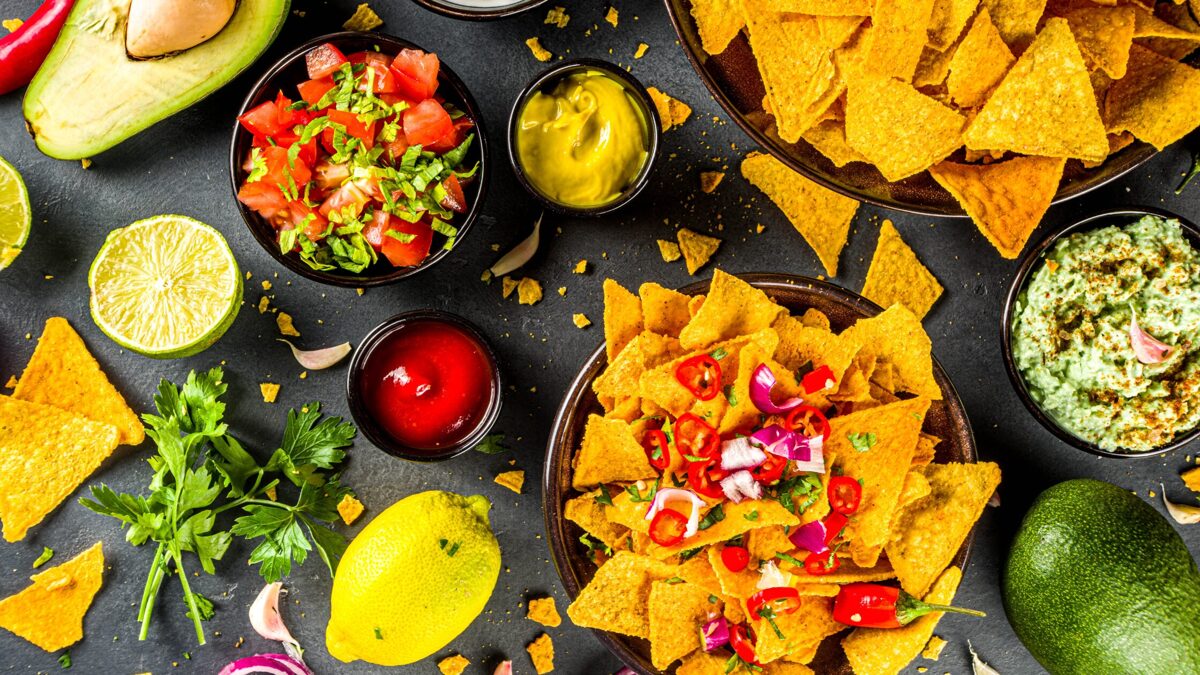
1. Hemp-Infused Spinach and Artichoke Dip
Ingredients:
1 cup fresh spinach, chopped
1 cup canned artichoke hearts, chopped
1/2 cup cream cheese
1/4 cup hemp seed oil
1/4 cup grated Parmesan cheese
2 cloves garlic, minced
Salt and pepper to taste
Tortilla chips or bread for serving
Instructions:
Preheat your oven to 350°F (175°C).
In a mixing bowl, combine the cream cheese, hemp seed oil, garlic, and Parmesan. Mix until smooth.
Fold in the spinach and artichokes, seasoning with salt and pepper.
Transfer the mixture to a baking dish and bake for 20-25 minutes, until bubbly and golden.
Serve warm with tortilla chips or slices of bread.
This creamy dip is a delightful twist on a classic favorite!
2. Hemp Seed Guacamole
Ingredients:
2 ripe avocados
1/4 cup hemp seeds
1 small onion, finely chopped
1 tomato, diced
Juice of 1 lime
Salt to taste
Fresh cilantro (optional)
Instructions:
In a bowl, mash the avocados with a fork until smooth.
Stir in the hemp seeds, onion, tomato, lime juice, and salt. Mix until well combined.
Garnish with cilantro if desired and serve with tortilla chips or veggie sticks.
This vibrant guacamole adds a nutritious boost and a satisfying crunch!
3. Hemp-Stuffed Mini Peppers
Ingredients:
12 mini sweet peppers, halved and seeds removed
1 cup cream cheese or vegan cheese
1/2 cup hemp seeds
1 teaspoon smoked paprika
Salt and pepper to taste
Instructions:
Preheat your oven to 375°F (190°C).
In a mixing bowl, combine the cream cheese, hemp seeds, smoked paprika, salt, and pepper until smooth.
Stuff each pepper half with the mixture and place them on a baking sheet.
Bake for 15-20 minutes, or until the peppers are tender.
Bringing hemp-based appetizers to your holiday gatherings not only adds a unique touch but also promotes a healthy celebration. These recipes are simple to prepare and can be enjoyed by everyone, whether they are seasoned hemp fans or trying it for the first time.
Elevate your festive meals with these delicious and nutritious options, and get ready to impress your guests! For more hemp products and ideas, visit our online shop


